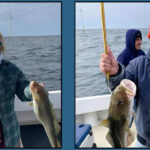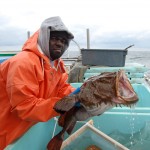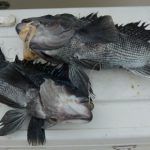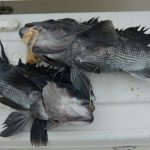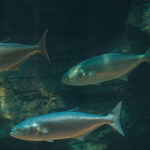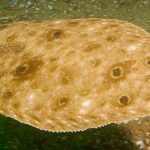Top photo: Fishing Machine Charters, Pt. Judith, RI hooked up with cod, pollock and cunner in the Cox Ledge area wind farm this winter. A visual survey conducted at South Fork Wind (SFW), an offshore wind farm located 16.5 nautical miles southeast of Block Island, Rhode Island in the Cox Ledge area, shows that the […]
South Fork Wind is Creating a ‘Reef Effect’
